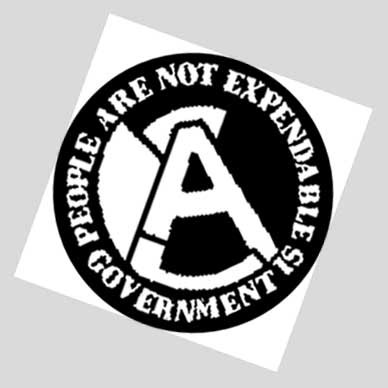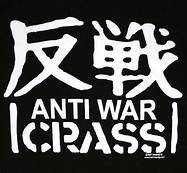368, DOA Bloodied but Unbowed
£0.45
DOA, Canaduh’s Punk rock institution still going strong.
In stock
Description
TORONTO — As hardcore pioneer Henry Rollins sees it, Canada doesn’t get enough credit for its contributions to the halcyon heyday of punk rock.
The former Black Flag singer says ferocious Vancouver punk outfits D.O.A. and the Subhumans were revered and influential, even though the coastal city isn’t often mentioned alongside London, New York or Washington as a hotbed of the caustic genre.
“All of Canada gets overlooked a little bit in the punk-rock spectrum, which is too bad, because that’s not right,” the personable Rollins said in a recent telephone interview from his office in California, before relating the story of a gig he saw in his native Washington back in the early ’80s.
“One of the best rocking shows I ever saw in my life was D.O.A. That show rocked so hard I thought the place was going to collapse. I mean, it was a power trio: Randy Rampage, Chuck Biscuits, and Joe. Chuck Biscuits was like 17, and there was just more energy in a minute of that guy’s playing than there is in someone’s entire recorded catalogue.”
“They did not stop. It was like the Ramones, where the songs were kind of seamless. And it was just coming at you with this pile-driving beat. You listen to those records and you’re like: ‘Whoa.’ You’d walk out of the show completely drenched and completely devoid of your body’s necessary fluids because they all came out of your pores, and all you’d remember is the good music and the drummer.
“So yeah, D.O.A. put on some of the best gigs I’ve ever seen in my life. I’m not exaggerating.”
Rollins is among a group of trailblazers interviewed for the documentary “Punk: Attitude,” which tracks the punk movement from its early ancestors through to the present.
Though the film — directed by Big Audio Dynamite vocalist and well-connected punk historian Don Letts — was initially released in 2005, it’s now being lavished with a double-disc DVD release, replete with a bundle of extras including short films on various punk-related issues and an extended interview with Rollins.
Growing up in Washington in the ’70s, Rollins wasn’t really wise to the underground music scene simmering in nearby New York or across the Atlantic. Instead, he grew up listening to arena rock.
“I was completely unhip,” he said. “So I listened to the radio and bought records from things I heard on the radio. I had Zeppelin records and Van Halen and Ted Nugent, and records you heard on the FM radio. And I went to see those bands because they were playing at the arena down the road. You’d buy your $8 ticket and go see Aerosmith from a mile and half away, because that’s what was around. And what I was aware of that was available to me.
“And then punk rock happened. It became known to me and someone loaned me his Clash album and his Ramones album. And these were hard records to find in those days because record stores just weren’t carrying this stuff. So you’d go to a record and naively (say), as a ’70s boy would do: ‘Excuse me, do you have the first Ramones album?’
“And they would look at you like there’s no such band as the Ramones, as the woman swept her Farrah ‘do back and recommend you buy ‘Rumors’ by Fleetwood Mac.”
“When I finally did get those records for myself, it was a real revolution for me. To hear anti-authoritarian lyrics, to hear someone yelling into a microphone because they’re angry and not because they’re horny.”
Of course, a few years later Rollins would take over as the vocalist for Black Flag, the incendiary California hardcore band that helped somehow make punk faster, and filled with even more defiant vitriol.
Rollins revels looking back on those years, relating stories about how his mother willingly welcomed scores of poor punk musicians to crash at her Washington-area home after gigs, including the Dead Kennedys, the Meat Puppets, Bad Brains, Minor Threat, D.O.A. and the Subhumans.
But he’s less enthusiastic about discussing Black Flag, noting that he doesn’t think about his old band that often, though he remains close friends with its members. That band’s landmark debut, “Damaged,” celebrates a 30th anniversary this year, but Rollins admits he wasn’t really aware of the milestone.
“‘Damaged’ is not a record I listen to,” he said. “When I listen to Black Flag, it’s not the stuff I’m on. The stuff I don’t sing on, that’s my favourite Black Flag stuff.”
Similarly, while the friendly, forthright Rollins was happy to chat about the documentary and trace his own punk-rock roots, he also conceded that he’s never actually seen the film.
“I can’t bring myself to watch any of these things that I’m in,” said Rollins, who recently contributed a 10-episode acting turn as a white supremacist on the acclaimed biker drama “Sons of Anarchy.”
“I can’t stand watching myself and so many of these punk-rock documentaries are these bitchfests, like: ‘Oh, he was a poseur, he sold out, no, he sold out, no, you sold out.’
“Oh, shut up. The music was good, we were all young. Now go trot into middle age.”
For what it’s worth, Rollins is taking his own advice.
On Feb. 13, Rollins is turning 50. He’s commemorating the occasion with a series of speaking engagements in New York, Washington and L.A., where the globe-trotting Rollins now lives in-between his near-constant travel excursions.
“There’s no way I could turn 50 and not make fun of myself onstage,” he said. “You can’t hit 50 and not tour on that. I will be onstage for two shows on my 50th birthday in my hometown. I want to make it a different show and I want to make it special.
“It’ll be a different set. It’ll be a shorter set. I’m not going keep you there all night. It won’t be my normal two-and-a-half-hour word-a-thon, where you never want to see me again.”





